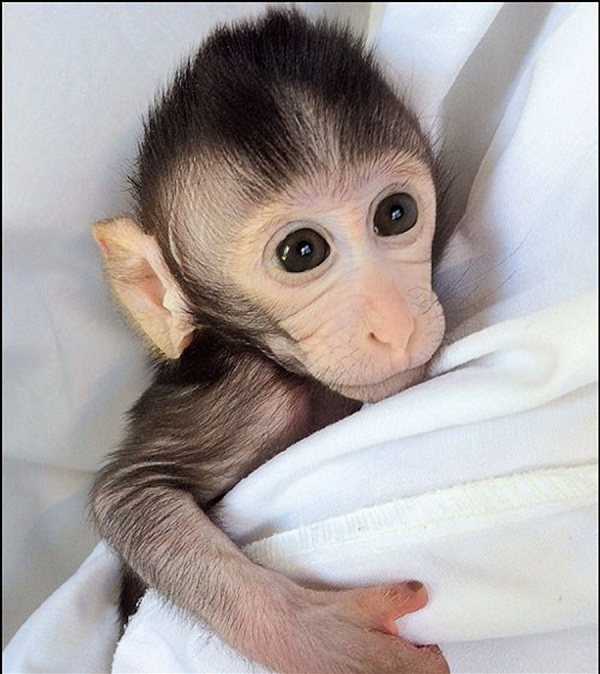

The first monkey implanted with the human autism gene. (Photo/Shanghai Daily)
Monkeys could lead the way in the pursuit of a cure for autism.
Pioneering local scientists have for the first time successfully implanted a human autism gene into a monkey and produced two generations of animals that exhibit symptoms of the neurodevelopment disorder.
The "transgenic" macaques behaved similarly to humans afflicted with autism, the team from the Chinese Academy of Sciences' Institute of Neuroscience wrote — making repetitive gestures, and displaying anxiety and poor social interaction.
This meant they could serve as a reliable animal model for researching the causes of, and possible cures for, autism in humans.
Previous research on autism has been focused on mice, whose brains are much smaller and less complex than those of humans, and are therefore unable to exhibit significant autism-like symptoms.
Autistic people usually have trouble interacting socially and struggle with anxiety and emotional problems.
Among children aged 6 and under, 78 percent of those who are treated for psychiatric problems are autistic.
There is so far no cure for autism, and its exact effects on the brain remain unclear.
"Autism is a highly genetic disorder and it is related to over 100 genes. So the treatment of autism and the establishment of an autism animal model are critical goals in both medicine and neuroscience," said Qiu Zilong, who led the study.
"Among the responsible genes, we chose MECP2, as all people with duplicated MECP2 are found to have autism. It is an important gene for autism."
Qiu's team began its research in 2009, producing the first generation of transgenic monkeys to manifest human MECP2 duplication in 2011.
The monkeys were borne by surrogate females, and their behavior studied as they grew up.
The researchers observed "an increased frequency of repetitive circular locomotion, increased anxiety, reduced social interaction," among other behaviors.
The second generation of these monkeys, who were born in 2014, also exhibited autism-like behaviors, demonstrating a genetic heritage of MECP2.
"This work demonstrated the feasibility and reliability of using genetically engineered non-human primates to study brain disorders," Qiu said. "We have started further research on these monkeys, which are receiving brain-imaging tests to study which parts of the brain and which neural circuits experience abnormal functions.
"Once we identify this brain circuit [problem] associated with the autism-like behavior, we will use therapeutics such as gene-editing tools to manipulate this MECP2 transgene in the transgenic monkey," he explained.
"With such information, scientists can develop more medicines and gene therapies for autism treatment." (Shanghai Daily)

86-10-68597521 (day)
86-10-68597289 (night)

52 Sanlihe Rd., Xicheng District,
Beijing, China (100864)

